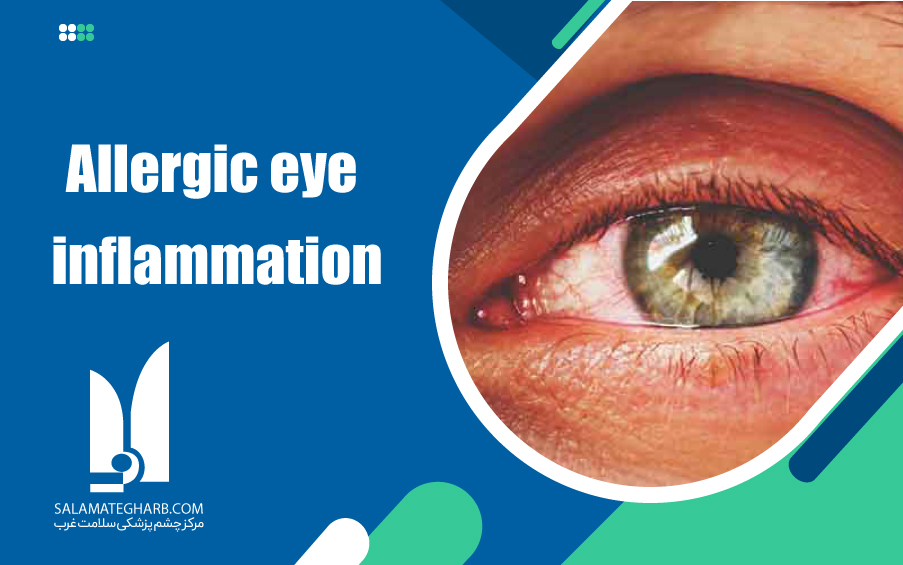Is conjunctivitis allergic?
The eye is one of the most sensitive organs in the body. For this reason, it is possible to become infected or allergic to allergens at any time. Conjunctivitis, which can affect many people each year, has been identified as one of the most common eye diseases. If you are also interested in getting information about conjunctivitis and knowing if it is allergic or not, join us in this article.
What is conjunctivitis?
Trachoma or inflammation of the conjunctiva is one of the most common eye diseases. This disease is caused by congestion of blood vessels in the eye. This complication causes irritation and redness of the eyes. Therefore, its main feature is swollen and pink eyes.
Trachoma or inflammation of the conjunctiva of the eye is an infectious eye disease, which can be caused by exposure to bacteria, viruses or germs. In some cases, insects such as mosquitoes can transmit these bacteria to a person’s body, causing them to have this ocular complication.
Conjunctivitis, as an old disease, is more common in areas with hot and dry climates. Known as preventable blindness worldwide, this condition can affect children and adults of all ages. Conjunctivitis is caused by congestion of blood vessels in the eye, causing irritation and redness of the eye.
How does conjunctivitis develop?
Various allergies can irritate and eventually cause swelling in the conjunctiva. Molds, dandruff and dust more than other cases can lead to eye infections and allergies.
When the human eye is exposed to allergens, a substance called histamine is released in the body. In this way, the blood vessels in the membrane of the front of the eye and eyelid become inflamed and swollen.
You should consult an ophthalmologist as soon as possible if the conjunctivitis of the eye has spread to the spherical part of the eye.
Consultation with an ophthalmologist
What are the symptoms of conjunctivitis?
Inflammation of the conjunctiva of the eye, like other eye diseases, begins with symptoms in the appearance of the eye. But it can also be linked to other allergic conditions such as eczema, asthma, seasonal allergies or dry eye syndrome. Here are some of the most common symptoms of conjunctivitis:
o Itchy eyes
o Eye irritation
o Red eyes
o Swelling of the eyelid
o Tears in the eyes
o Mucous secretions of the eye
o Feeling of a foreign substance or dust in the eye
o Runny nose
o Sneezing
o Cough
o Sinus headache
What is the treatment for conjunctivitis?
Inflammation of the conjunctiva, like any other disease, has different treatments. But since conjunctivitis is an allergic disease, it is best to consult an allergist or ophthalmologist before choosing a treatment.
o Lifestyle change
Stay indoors, during the hours of the day when plant pollen in the air is too normal.
Use of anti-allergy drugs such as antihistamines
Use of topical antibiotics
o Use eye ointments
Avoid exposure to anything that could cause an allergic reaction. Like cat or cigarette smoke
Use of eye drops and artificial tears
Use of anticonvulsants at the doctor’s discretion
o Put a cold compress on the swollen eye
o and…
The above are some of the most effective treatments available to reduce conjunctivitis. However, in some cases, it is the physician who determines that one or more of these methods will be effective in treating the disease.


Leave A Comment